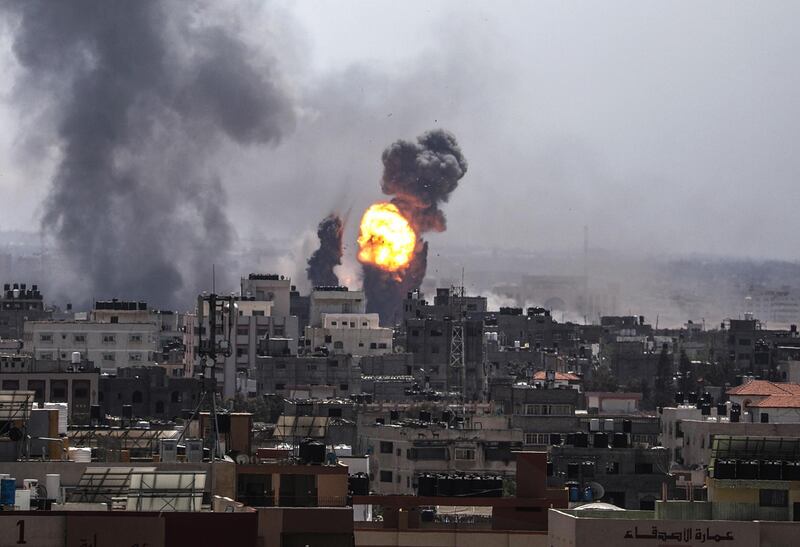The past two days have seen a worrying escalation of violence in the Gaza strip. After Israel killed two Hamas militants in air strikes, and two civilians participating in weekly demonstrations, the Israel Defence Forces intercepted dozens of rockets launched from within the occupied territory. In response, Israel bombarded Gaza with missiles. The level of death and destruction is so far unknown, but more than 200 Gazans have been killed by Israeli troops since the Great March of Return began last March. Most were ordinary Palestinians voicing their anger, following years of blockades and occupation, and demanding a right to return for those forced out of Palestine by the creation of Israel in 1948. The Arab world stands behind Palestine in its quest for statehood – particularly the two million residents of Gaza, who are crammed into a sliver of territory where water, food, jobs, medicine and hope are short. This is often framed as a tit-for-tat conflict but, in reality, it is woefully one-sided. Palestinians live under brutal occupation and those peacefully demanding justice are being picked off by Israeli snipers.
Only a two-state solution, with a united Palestine, comprising East Jerusalem, Gaza and the West Bank, will be good enough. And yet, ahead of the Trump administration's so-called peace plan being unveiled, this could scarcely look less likely. Speaking in Washington on Thursday, Mr Trump's son-in-law and senior advisor, Jared Kushner, indicated that his plan would not involve a two-state solution. "We said, you know, let's just not say it," he explained. Mr Kushner's deal is to be unveiled after Ramadan, but his comments confirm what we already know – that any plan will appease Israel, and devastate hopes for Palestinian statehood. Indeed, in an interview with The National last week, Palestine's UN ambassador Riyad Mansour said: "If we do not separate and have a two-state solution, then they are pushing [us] into a one-state reality. One state would be apartheid."
Few US presidents have been as partial towards Israel as Mr Trump. From cutting off aid and closing the PLO office in Washington, to relocating the US embassy to Jerusalem, Mr Trump has favoured Israel at every turn. With the balance of power overwhelmingly to his advantage, Israeli Prime Minister Benjamin Netanyahu feels no need to come to the negotiating table. And, all the while, Palestinians continue to suffer under occupation. Next on the agenda for Mr Netanyahu is his promise to annex settlements in the West Bank. Mr Kushner urged Israel to wait for the peace plan before proceeding, but Palestinians will rightly be sceptical about the likelihood of reprimand should Mr Netanyahu push ahead anyway. The future looks bleak for Gaza and the West Bank. As Ramadan begins, Palestinians should be looking forward to a peaceful month, followed by the unveiling of Mr Kushner’s deal. Instead they are besieged by Israeli rockets and contemplating the demise of a two-state solution.





